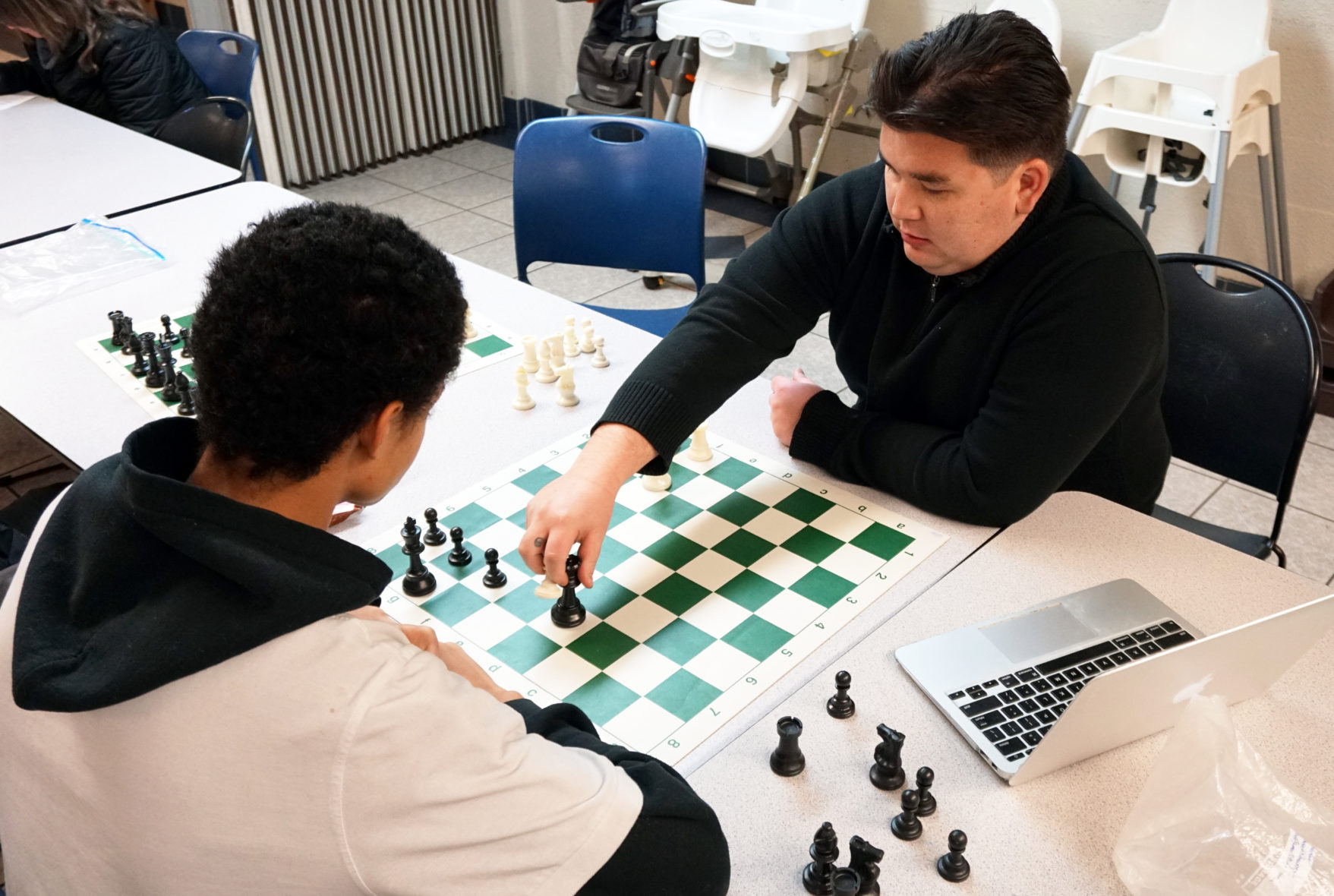Tables are set up with vinyl chess boards and chess pieces on them in the dining hall at City Light Home For Women. Nearly 10 kids start to fill the room and begin to play chess. Some of them play side by side, others have a table to themselves.
Diezel Cable looks forward to every Wednesday after school because he gets to do his favorite thing — problem solve while playing.
“Chess is a math equation for me,” said the West Junior High ninth grader.
Diezel goes to City Light Home For Women every week after school for homework club, but every Wednesday for the last five months Devin Nakano greets him with a game of chess. Nakano isn’t a teacher, but a 28-year old entrepreneur who works in cybersecurity. He created a nonprofit called Y STEM and Chess to mentor low-income students in science, technology, engineering and math (STEM).

“I saw this massive need and huge niche no one else was doing,” he said.
Y STEM and Chess provides free classes in math, coding and chess to socially and economically underserved students, including immigrants and refugees. The goal is to provide students with STEM skills, knowledge and opportunity and give them awareness about STEM career paths. Nakano wants these students to graduate high school with a strong math foundation along with skills in coding.
“By increasing the number of underserved in the fields of STEM, we will help foster the robust introduction of innovative ideas, growing our economy, reducing poverty and increasing social inclusivity,” he said.
Nakano travels to the Boys and Girls Club of Ada County, City Light Home For Women and Boise’s Taft Elementary to reach nearly 100 students each week. He starts by teaching students chess because of the problem-solving benefits. Nakano said the game instills creativity, improves memory, and helps improve math skills. After students nail down the game of chess, Nakano teaches them the ins and outs of coding and also tutors them on math homework.
“I want to reduce the obstacles these students face,” he said. “It’s about showing students that anyone can do STEM.”
Nakano has put in nearly $5,000 of his own money into the nonprofit and has received a grant from Idaho IT Symposium. The money is being used to pay for resources including laptops and supplies.
“Students are engaged,” said Shelli Hansen, the children’s program manager at City Light Home For Women. “This is a positive reinforcement and relaxation. Students are using their minds and putting their screens away.”
This is Nakano’s passion and ninth-grader Diezel sees him as a mentor. Diezel wants to become a mechanical engineer someday and believes learning chess and coding skills in junior high will help him succeed in high school and college.
“Diezel will be one of our shining examples, Nakano said. “I want to see him get a high paying job.”
